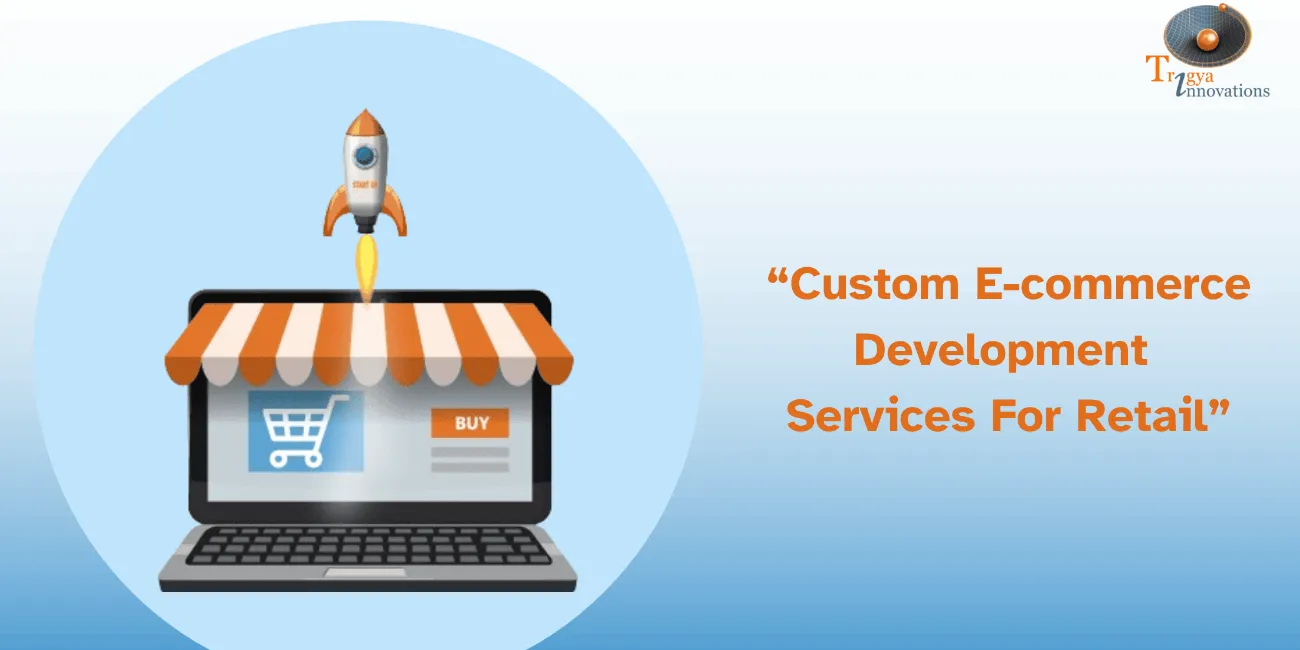As we approach 2025, the retail industry continues to evolve at an unprecedented pace. One of the most transformative trends reshaping the landscape is personalization in eCommerce for retail. Personalization is no longer a luxury; it’s a necessity for staying competitive in an era where consumers demand tailored experiences. This blog post explores the importance of personalization, its benefits, implementation strategies of eCommerce development services, and future trends shaping the industry.
Understanding Personalization in eCommerce for Retail
Personalization refers to the practice of tailoring the shopping experience to individual customers based on their preferences, behaviours, and demographics. In the context of eCommerce for retail, this involves curating product recommendations, customising marketing messages, and creating unique user experiences that resonate with each shopper.
Unlike generic one-size-fits-all approaches, personalization uses data-driven insights to create a seamless and engaging journey for online customers. This approach has proven to enhance customer satisfaction, loyalty, and overall business growth.
Why Personalization Matters?
Enhanced Customer Experience : In a crowded marketplace, customer experience sets businesses apart. Personalization ensures that customers feel understood and valued, which can significantly improve their interaction with your brand.
- Higher Conversion Rates: Personalized product recommendations and targeted marketing messages are more likely to convert browsers into buyers. Research indicates that personalization can boost conversion rates by up to 20%.
- Increased Customer Loyalty: When customers receive personalized experiences, they are more likely to return to your store. Building strong relationships fosters loyalty, which is critical for long-term growth in eCommerce for retail.
- Improved ROI on Marketing Efforts: Targeted marketing campaigns based on customer data yield better results. Personalization reduces wasted advertising spend by delivering relevant content to the right audience.
- Data-Driven Decision Making: Personalization relies on analytics and insights, enabling retailers to make informed decisions about product offerings, pricing, and promotions.
Key Elements of Personalization in eCommerce for Retail
Dynamic Product Recommendations : Retailers can use algorithms to recommend products based on browsing history, purchase behaviour, and preferences. For example, Amazon’s “Customers who bought this also bought” feature is a benchmark for effective personalization.
- Customized Landing Pages: Personalized landing pages cater to a shopper’s interests, making them more likely to explore and purchase products.
- Targeted Email Campaigns: Email marketing is a powerful tool for personalization. Sending tailored emails with product suggestions, exclusive offers, or abandoned cart reminders can re-engage customers effectively.
- Personalized Search Results: Optimized search functionality that adapts to a user’s behavior can help them find what they’re looking for faster, improving the overall shopping experience.
- Interactive Chatbots: AI-driven chatbots can provide personalized assistance by answering queries, recommending products, and guiding customers through the purchasing process.
Steps to Implement Personalization in eCommerce for Retail
- Collect and Analyze Customer Data: Start by gathering data through customer interactions, purchase histories, and feedback. Use tools like Google Analytics, CRM platforms, and heatmaps to gain insights into customer behavior.
- Segment Your Audience: Group customers based on shared characteristics such as age, location, purchase history, and browsing habits. This segmentation helps in delivering targeted content.
- Leverage AI and Machine Learning: Utilize AI tools to process vast amounts of data and predict customer preferences. Machine learning algorithms can help refine personalization strategies over time.
- Invest in Technology: Invest in personalization platforms and eCommerce software that support advanced features such as dynamic recommendations, tailored emails, and real-time customer profiling.
- Test and Optimize: Continuously test your personalization strategies. Use A/B testing to identify what works best and refine your approach for better results.
Real-World Examples of Personalization Success
- Netflix: Netflix’s personalization engine curates content suggestions based on user preferences, ensuring that each viewer’s homepage feels uniquely tailored to their taste.
- Sephora: Sephora uses data-driven personalization to recommend beauty products based on a customer’s skin type, previous purchases, and preferences.
- Nike: Nike’s customization options allow customers to design their own shoes, creating a deeply personal shopping experience.
Challenges and Solutions in Personalization
- Data Privacy Concerns: With increasing regulations like GDPR, retailers must handle customer data responsibly. Transparency in data collection and offering opt-in features can build trust.
- Integration Complexities: Integrating personalization tools with existing systems can be challenging. Working with skilled developers and robust software solutions can streamline the process.
- Balancing Automation with Human Touch: While automation is essential, maintaining a human element in interactions ensures a more authentic customer experience.
Future Trends in Personalization for eCommerce Retail
- Hyper-Personalization: Advances in AI will enable even deeper levels of personalization, predicting customer needs before they arise.
- Augmented Reality (AR) Experiences: AR technology will allow customers to visualize products in their spaces, creating a more immersive and personalized shopping experience.
- Voice Commerce: As voice assistants like Alexa and Google Assistant become more popular, personalization in voice commerce will be a key trend.
- Sustainability-Focused Personalization: Retailers will use data to recommend eco-friendly products based on customer preferences and buying habits.
Conclusion
As the digital landscape continues to evolve, investing in personalization will position your brand as a leader in the retail space, ensuring sustained success in an increasingly competitive market.
With Trigya Innovations’ eCommerce development services and Zoho’s cutting-edge solutions, your business is poised for unparalleled success. Let’s make 2025 the year your retail business reaches new heights with tailored eCommerce for retail strategies!




